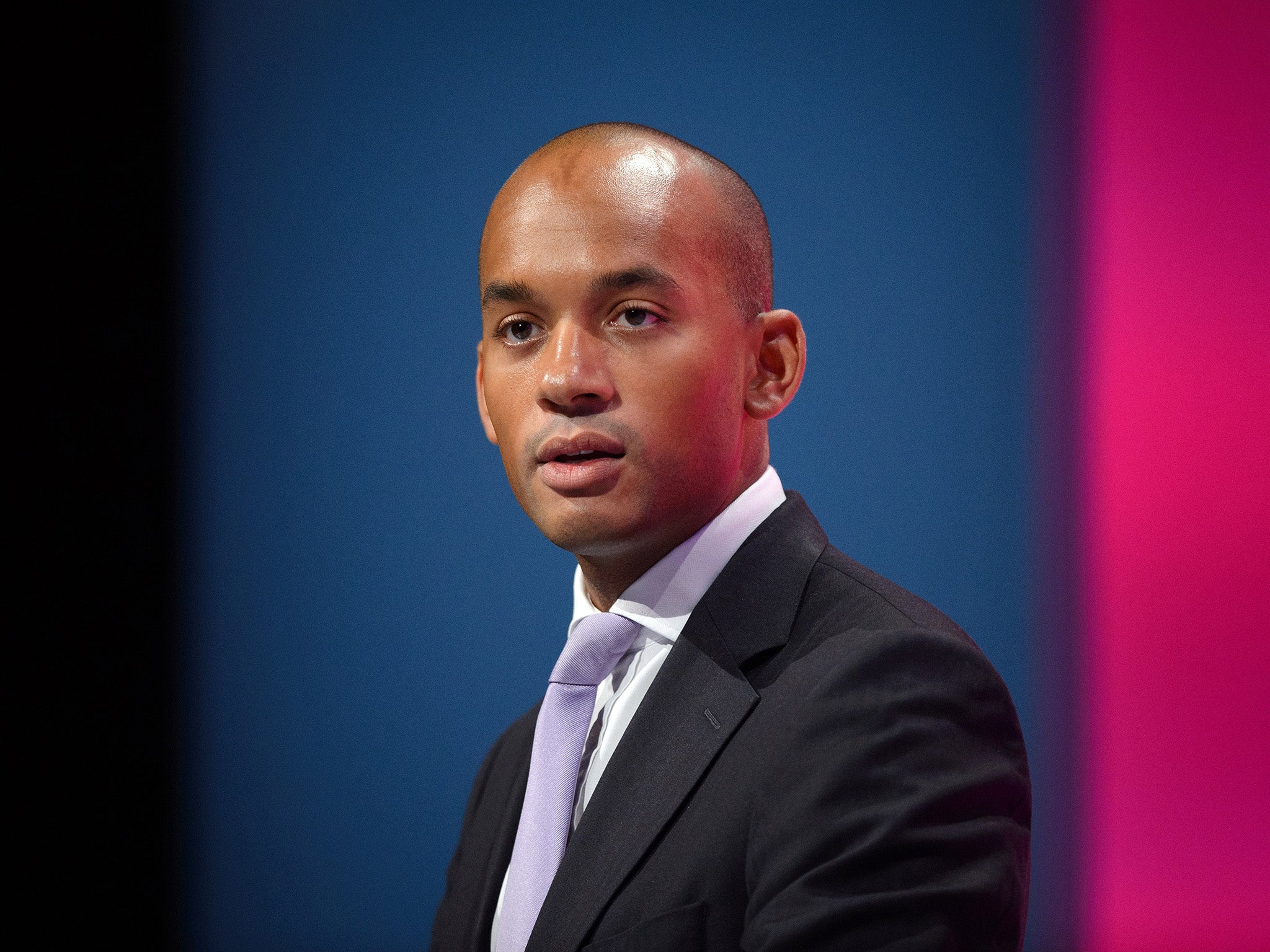Chuka Umunna: Labour shedding the support of ethnic minorities, warns MP
'The alarm bells should be ringing'

Labour is haemorrhaging support among ethnic minority voters in the marginal constituencies it needs to win if it is to have any chance of challenging the Conservatives at the next general election, one of the party’s leading figures has warned.
In stark remarks Chuka Umunna accused his party of taking the support of black and ethnic minority voters “for granted” and said that it was “shedding” the support it needed to win.
The former Shadow Business Secretary highlighted research showing that in 2010 around 16 per cent of ethnic minority voters had voted Conservative, while 68 per cent voted Labour. By the last election Conservative support had jumped to 33 per cent – equivalent to an extra million votes.
“We haven’t a hope in hell of retaining all our current seats, let alone making enough gains and win the next general election, if we continue to lose ethnic minority votes at the rate we are,” he said. “The alarm bells should be ringing.”
Mr Umunna said that not only was the party failing to speak to the aspirations of black and Asian voters, but it was losing the battle to look and feel more representative of the country as a whole.
“In 1987, all the ethnic minority MPs in the Commons were Labour,” he said. “In this parliament, there are now 41 ethnic minority MPs: 23 Labour and 17 Tories.
“But, while there are 10 more ethnic minority Labour MPs, there are 15 more Tory ones compared to the last parliament. Make no mistake: the Tories aim to ensure there are more Tory ethnic minority members of the 2020 parliament than Labour ones.”
Mr Umunna warned that part of the problem was that Labour was consolidating support in areas where it already had large majorities but losing it in more marginal seats.
At a speech to the Unison black members conference, Mr Umunna will announce he is establishing an independent inquiry into Labour’s support among Britain’s ethnic minority communities, alongside Keith Vaz, the Labour Chairman of the Home Affairs Select Committee.
The inquiry is intended to “get to the bottom of why we are losing support, and come up with solutions” in time for the next general election.
Mr Umunna cited research showing the average parliamentary majority is 11,479, or 24.08 per cent of votes cast.
He said the research showed that in one in three constituencies the ethnic minority population exceeded the majority of the sitting MP. “Whether you can attract ethnic minority support in those seats can be decisive,” he added.
In an implicit criticism of Jeremy Corbyn’s leadership, Mr Umunna said Labour’s “time for complacency” was over and it must be the party of “aspiration” as well as being the protector of the poor.
Sunder Katwala, head of the think-tank British Future, said he agreed with that analysis and warned that Labour faced a “danger of complacency” that represented “a big risk to the party in 2020 and beyond”.
“Labour needs to be reaching out and appealing to people in Bedford and Reading and not just in Bradford and Birmingham. This is what Labour is failing to do,” he said.
Mr Katwala likened the party’s problems to that of the 1980s: “When the C2s traded up to Thatcher in the 1980s, in part they were saying, we are not the underdogs and we no longer need the party of the underdog. They no longer felt vulnerable. In a way that’s what you’re seeing with second generation immigrants. They are trading up.”
He added that the rise of Ukip had strangely helped detoxify the Tory brand, while Labour had yet to work out a message that appealed both to ethnic minorities and its core white working class support.
“Labour has a dilemma. On one hand they’re worried about their traditional white working class supporters going to Ukip, and on the other they want to keep their aspirant immigrant voters. They don’t seem to be able to talk to both,” he said.
He added: “Corbyn also has the problem that while he might appeal to the so-called old black left and possibly ethnic minorities in the public sector, he has weak appeal to the pro-market pragmatic ethnic minority vote who are pro-business and pretty optimistic about the country. Corbyn may end up accelerating what we’ve already seen.”
Subscribe to Independent Premium to bookmark this article
Want to bookmark your favourite articles and stories to read or reference later? Start your Independent Premium subscription today.

Join our commenting forum
Join thought-provoking conversations, follow other Independent readers and see their replies